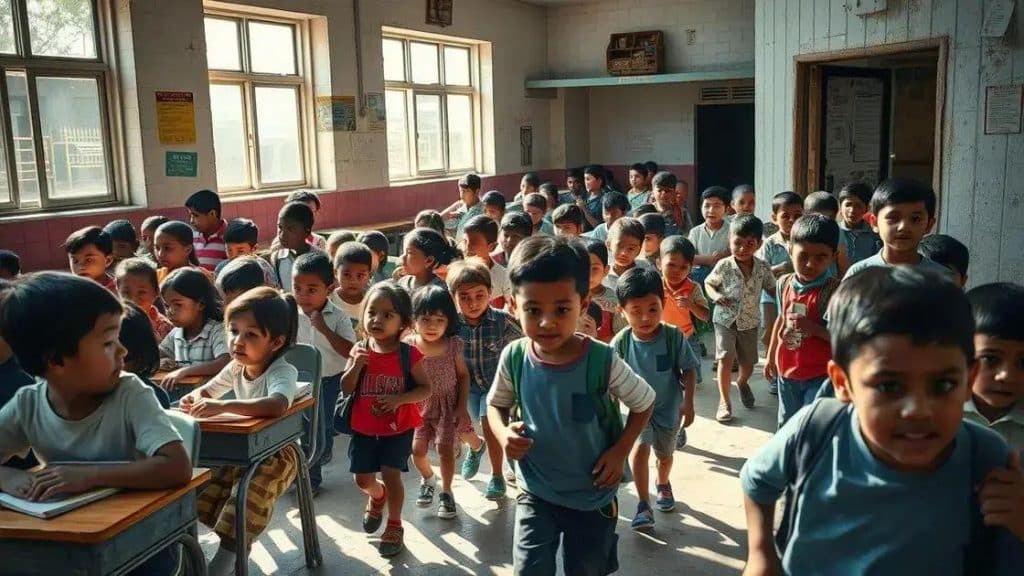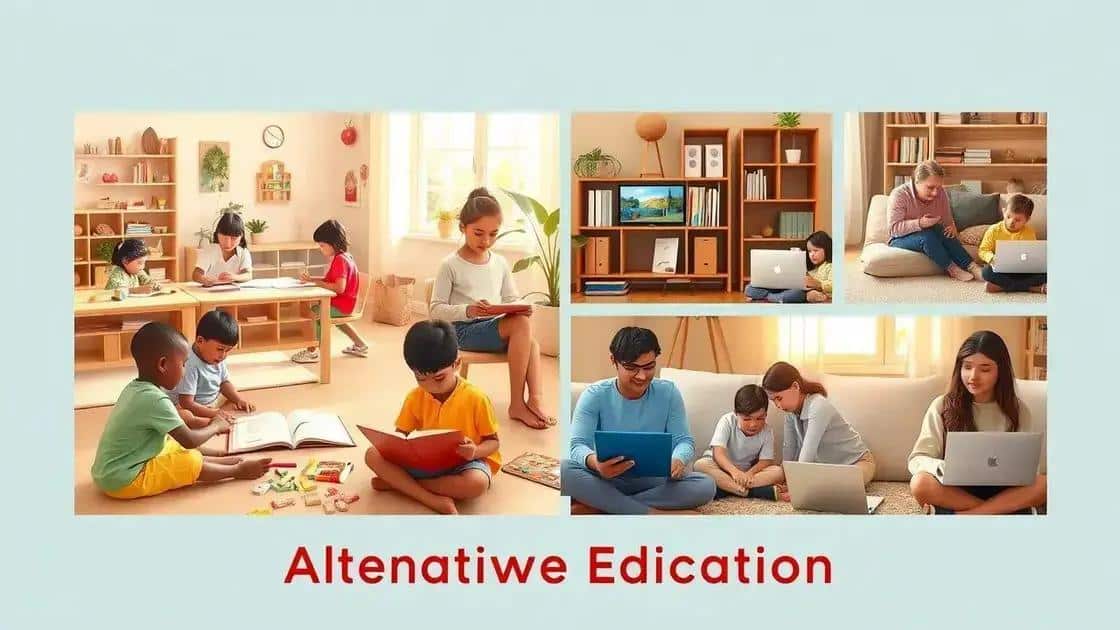Off private school access: Understanding the challenges

Off private school access poses significant challenges for families, making it essential to explore alternative education options, connect with community resources, and advocate for policy changes to ensure equitable educational opportunities.
Off private school access has become a significant topic in today’s educational landscape. Have you ever considered how this affects students and families? Let’s dive into the intricacies of this pressing issue.
Understanding the implications of off private school access
Understanding the implications of off private school access is essential in today’s educational environment. Many families face challenges when it comes to securing quality education for their children, especially when they cannot access private institutions.
This situation creates a ripple effect on the community and the individual. Parents often feel pressured to find alternatives, which can lead to complicated decisions.
Impacts on Students
When private school access is limited, students might face several educational challenges. The lack of resources and opportunities can affect their learning experience.
- Reduced program variety
- Increased class sizes
- Limited access to skilled educators
Such limitations can hinder a child’s overall development and academic performance.
Alternative Education Options
There are various alternatives available for families. Options like charter schools, homeschooling, and online learning platforms can sometimes provide suitable educational paths. It’s important to research these avenues thoroughly.
- Charter schools offer specialized programs.
- Homeschooling allows for customized learning experiences.
- Online platforms provide flexibility and access to diverse materials.
Finding the right fit requires understanding each option’s benefits and limitations. Keep in mind that support from the community can also play a significant role in mitigating the challenges posed by off private school access.
In conclusion, addressing the implications of off private school access is crucial for families navigating this educational landscape. Whether considering alternatives or advocating for change, being informed is the first step toward ensuring that children receive a quality education.
Exploring alternative education options

Exploring alternative education options is crucial for families facing challenges with traditional schooling. These options can offer personalized learning experiences that cater to individual needs.
As students and parents seek new paths, they often discover various educational models available today. Understanding these alternatives can empower families to make informed decisions.
Types of Alternative Education
Alternative education can take many forms. Each option may have unique benefits and drawbacks.
- Montessori Schools: These schools focus on hands-on learning and independence.
- Charter Schools: They provide specialized curriculums with increased flexibility.
- Homeschooling: This option allows parents to tailor the education to their child’s learning style.
Exploring these choices helps parents find what fits their family best. Additionally, there are online education platforms that allow students to learn at their own pace.
The Benefits of Alternative Education
Alternative education options often excel in addressing different learning styles. Students thrive in environments that suit their unique needs. Parents report higher satisfaction levels when exploring these alternatives.
Some key benefits include:
- Smaller class sizes that encourage participation.
- A focus on critical thinking and problem-solving skills.
- The ability to learn in a more engaging way.
As families consider these options, it is essential to evaluate the fit for their children’s learning preferences. Finding the right educational environment can significantly impact their overall development and success.
The impact on families and communities
The impact of off private school access on families and communities can be significant. Many parents face immense pressure when they cannot enroll their children in private schools, leading to various emotional and financial challenges.
Families often find themselves evaluating alternatives, such as public schooling or homeschooling, which can create a sense of uncertainty. A community’s educational landscape may change dramatically when many families are forced to seek different options.
Emotional Effects on Families
When parents struggle with access to private schooling, it can lead to feelings of frustration and anxiety. The stress of finding the right educational environment for their children can take a toll on family dynamics.
- Increased stress levels among parents.
- Concerns over children’s academic performance.
- Impact on familial relationships due to educational decisions.
These emotional aspects significantly influence the overall well-being of families, affecting their daily lives and interactions.
Community Dynamics
Additionally, off private school access can alter the fabric of a community. Schools are central to local communities, serving as hubs for social interactions and support.
As families turn to alternative options, communities may experience:
- Decreased enrollment in local schools.
- Shift in community resources and funding.
- Changes in neighborhood demographics.
When educational options are limited, the connections among community members can be strained. Efforts to support local schools and provide opportunities for all students become crucial for fostering unity and resilience.
Strategies for overcoming accessibility issues

Strategies for overcoming accessibility issues in education can make a significant difference for families facing challenges with traditional private school access. By exploring these strategies, parents can find effective ways to secure better educational opportunities for their children.
Many families initially feel overwhelmed, but understanding the options available can empower them to take action. It’s essential to stay informed about resources, programs, and community support.
Research Local Options
One effective strategy is to research local educational options thoroughly. Different districts may offer various programs aimed at improving access.
- Explore public schools with specialized programs.
- Look for charter schools that focus on unique curricula.
- Investigate local community colleges for dual enrollment options.
Each of these alternatives can provide valuable resources and various pathways for students.
Connect with Community Resources
Another vital strategy involves connecting with community resources. Nonprofits and local organizations often provide support for families navigating educational challenges. These organizations can offer:
- Workshops on educational rights and options.
- Mentorship programs for students.
- Networking opportunities for parents.
Building a support network can help families feel less isolated and more empowered to explore alternatives.
Advocate for Policy Changes
Advocating for policy changes is also essential. Families can raise awareness about accessibility issues by:
- Attending school board meetings.
- Joining local advocacy groups.
- Writing letters to local officials about the need for better educational access.
These actions encourage communities to prioritize accessibility and develop strategies for improvement.
FAQ – Frequently Asked Questions about Off Private School Access
What are alternative education options available for my child?
Some options include homeschooling, online education, charter schools, and special programs in public schools.
How can I support my child’s education effectively?
Connect with community resources, attend local school meetings, and consider various educational alternatives that fit your child’s needs.
What role do community organizations play in education?
Community organizations can provide support, resources, and networking opportunities to help families navigate educational challenges.
How can I advocate for better educational access?
You can advocate by attending school board meetings, writing to local officials, and joining advocacy groups focused on educational issues.





